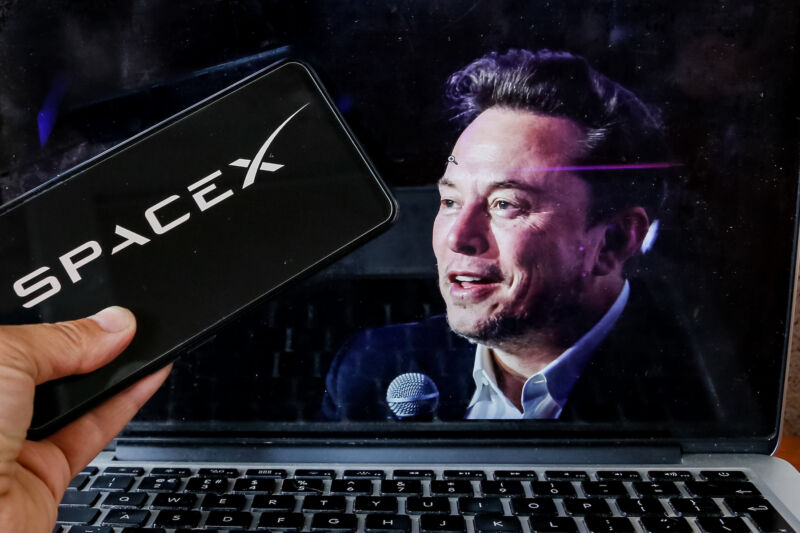
Enlarge / Elon Musk, SpaceX’s founder and CEO, has called for the resignation of the FAA administrator.
The clash between SpaceX and the Federal Aviation Administration escalated this week, with Elon Musk calling for the head of the federal regulator to resign after he defended the FAA’s oversight and fines levied against the commercial launch company.
The FAA has said it doesn’t expect to determine whether to approve a launch license for SpaceX’s next Starship test flight until late November, two months later than the agency previously communicated to Musk’s launch company. Federal regulators are reviewing changes to the rocket’s trajectory necessary for SpaceX to bring Starship’s giant reusable Super Heavy booster back to the launch pad in South Texas. This will be the fifth full-scale test flight of Starship but the first time SpaceX attempts such a maneuver on the program.
This week, SpaceX assembled the full Starship rocket on its launch pad at the company’s Starbase facility near Brownsville, Texas. “Starship stacked for Flight 5 and ready for launch, pending regulatory approval,” SpaceX posted on X.
Apart from the Starship regulatory reviews, the FAA last week announced it is proposing more than $633,000 in fines on SpaceX due to alleged violations of the company’s launch license associated with two flights of the company’s Falcon 9 rocket from Florida. It is rare for the FAA’s commercial spaceflight division to fine launch companies.
Michael Whitaker, the FAA’s administrator, discussed the agency’s ongoing environmental and safety reviews of SpaceX’s Starship rocket in a hearing before a congressional subcommittee in Washington Tuesday. During the hearing, which primarily focused on the FAA’s oversight of Boeing’s commercial airplane business, one lawmaker asked Whitaker the FAA’s relationship with SpaceX.
Public interest
“I think safety is in the public interest and that’s our primary focus,” said Michael Whitaker, the FAA administrator, in response to questions from Rep. Kevin Kiley, a California Republican. “It’s the only tool we have to get compliance on safety matters,” he said, referring to the FAA’s fines.
The stainless-steel Super Heavy booster is larger than a Boeing 747 jumbo jet. SpaceX says the flight path to return the first stage of the rocket to land will mean a “slightly larger area could experience a sonic boom,” and a stainless-steel ring that jettisons from the top of the booster, called the hot-staging ring, will fall in a different location in the Gulf of Mexico just offshore from the rocket’s launch and landing site.
The FAA, which is primarily charged with ensuring rocket launches don’t endanger the public, is consulting with other agencies on these matters, along with issues involving SpaceX’s discharge of water into the environment around the Starship launch pad in Texas. The pad uses water to cool a steel flame deflector that sits under the 33 main engines of Starship’s Super Heavy booster.
SpaceX says fines levied against it this year by the Texas Commission on Environmental Quality (TCEQ) and the Environmental Protection Agency (EPA) related to the launch pad’s water system were “entirely tied to disagreements over paperwork” and not any dumping of pollutants into the environment around the Starship launch site.
SpaceX installed the water-cooled flame deflector under the Starship launch mount after the engine exhaust rocket’s first test flight excavated a large hole in the ground. Gwynne Shotwell, SpaceX’s president and chief operating officer, summed up her view of the issue in a hearing with Texas legislators in Austin on Tuesday.
“To protect that from happening again, we built this kind of upside-down shower head to basically cool the flame as the rocket was lifting off,” she said. “That was licensed and permitted by TCEQ. The EPA came in afterwards and didn’t like the license or the permit that we had for that, and wanted to turn it into a federal permit, which we are working on now.”
“We work very closely with organizations such as TCEQ,” Shotwell said. “You may have read a little bit of nonsense in the papers recently about that, but we’re working quite well with them.”